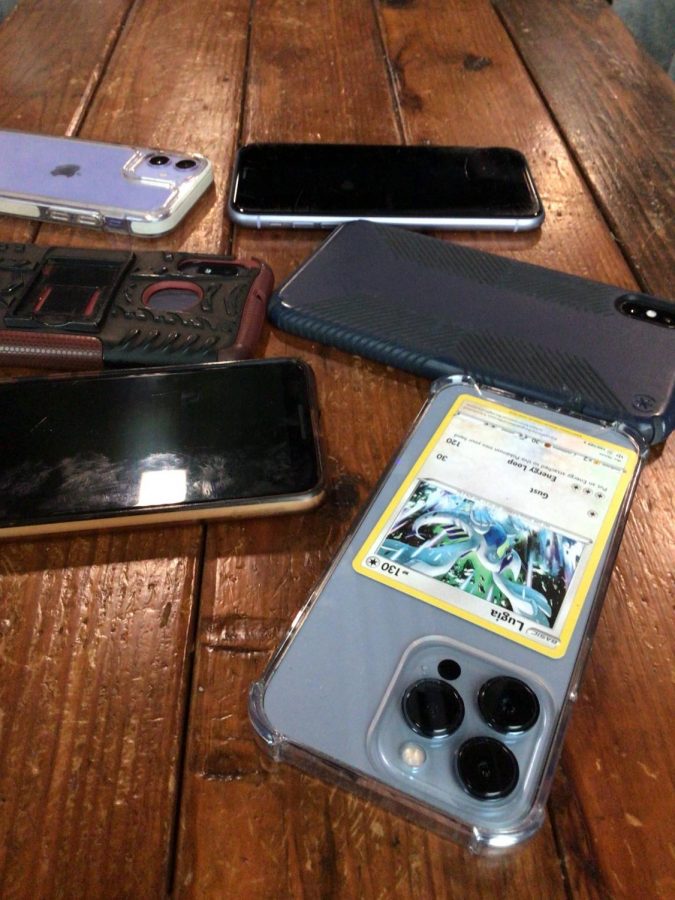Disconnecting From Cell Phones?
October 29, 2021
Everyone today has his or her nose stuck in a phone, rather than a book.
To some people, phones can be considered distractions to the learning environment, whereas others feel that it helps boost the confidence and focus of the students in their teacher’s classroom. Technology has come a long way from what it was. Just a few years ago, the flip phone was the most popular device to have; nowadays there are phones the size of small tablets.
With technology becoming a bigger franchise, every student has a phone alongside him or her for the entire day, even during class. This is where the teachers get sceptical about cellular devices. Without students learning, teachers fear they will be seen as being laid-back and not caring about their students’ education. Yet, if phones are put away, the teachers will be considered too strict and, in some cases, labeled by students as being stupid and dumb for their rules about phones and electronics.
Appropriate phone usage is always going to be different depending on the teacher’s rules and guidelines. Preparing for College and career teacher, Mr. Michael Fritschi says, “No, phones do not distract me from teaching.” He continues, “I’m pretty good at powering through distractions during instructional portions of class, but they are extremely distracting to students.”
With this being said, phones make it harder for students to complete assignments and pay attention to lesson plans. Genetics teacher Mrs. Holly Hogan agrees. “Yes! Phones are such a distraction while I’m trying to teach.” She continues her explanation, saying, “When students are on their phones while teaching is happening, or I’m giving out instructions for an assignment or lab, they’ll miss important information and may end up doing the wrong thing.”
However, both teachers agree that listening to music helps many students. “As long as they are not distracting others and are actually working while they listen to music,” Hogan adds, then it can be deemed beneficial. Even Hogan herself enjoys playing music. “Music helps many people focus,” she states. “I personally cannot work in silence. I get more distracted with silence rather than music.” Fritschi agrees with Hogan. “I am perfectly fine with students listening to music while they do their work.”
Though music is allowed during school work for some classrooms, what about after students have completed assignments? “Yes,” Fritschi answered. “Once all assignments are completed, students may be on their phones in my class.” Hogan chimes in. “If students have completed all of their work, then I am more open to them being on their phones.” Hogan continues her guidelines: “However, other students tend to get distracted when their classmates have phones out, and if this causes the entire class to get their phones out, there will be consequences.” Overall, Hogan would love to see students away from their phones for her class, but unfortunately in this day and age, she’s aware that’s not going to happen.
Every teacher around the country–and the world–might love to see phones, cellular devices, and any other electronics away from the perimeter of their classrooms and schools, they might just be out of luck.








